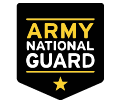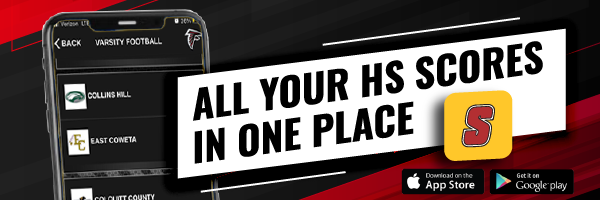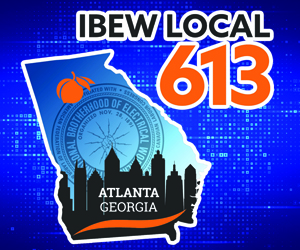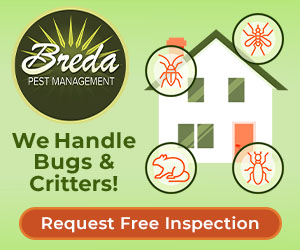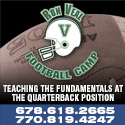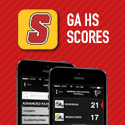The H1N1 virus, formerly known as Swine Flu, has made its way onto the front pages of papers and websites around the world (NyQuil, it turns out, does not cure everything). International agencies, governments and health departments have issued guidelines and made recommendations, but we at Score wanted to look into the average sports fan’s game day experience and find a few ways to decrease exposure. Here are a few specific actions you may find useful.
Sanitary Stocks: Chances are you will touch turnstiles, doors, handrails, escalators, elevator buttons, counter tops, seats, or even communal condiment stands during your visit to a sporting event. And chances are that thousands of people will have touched them before you have. Bring hand sanitizer and use it once you have reached your seat. Additionally, it is especially important to scrub up before you dig into a meal. Everyone knows that we are supposed to wash our hands before we eat, but it is hard to do at the ball park so make it a priority. Speaking of which …
Skip the vendors: You pass your money down the row and the vendor passes your food back. You don’t have to get up and you don’t have to miss any of the action either, but there is something very important happening in this chain of events. Your food is being served by someone who is handling money and then touching your food. As germophobes everywhere already know, the tradition of passing money and food down the row also increases the number of potential exposures to your food and to your change. Head to the concession stand instead and make sure to wash your hands with your hand sanitizer before you eat.
Covering your bases: Make your mom proud and cover your mouth when you cough or sneeze. Bring tissues to cough or sneeze into. If you forget the Kleenex, cough or sneeze into the crook of your arm (or even down your shirt) as opposed to sneezing into your hand. Bless you.
Safe at home: If a boss tells a guy who is feeling a little iffy to stay home from work he will certainly oblige and might even be a little happy about not having to drag himself to the office. But if you tell that same guy to stay home from the game that he really wants to see and he has already bought a ticket for, it will most likely be a little harder to convince him to skip the event. Take one for the team and stay home if you are felling sick.
Keep one eye on the ball and the other on guy next to you: It is important for people to be aware of the health of those around them. As mentioned above, it may be more likely that a sick person will attend a ball game than a day at work. If a person near you seems sick, it is not out of line to ask an usher to reseat you in a different location especially if the game s lightly attended. If you are unable to move, make sure to offer one of the tissues you brought to your nosey neighbor.
Masking agent: Don’t be afraid to wear a mask. It may feel a little silly, but you shouldn’t be afraid to wear a facial mask if it makes you feel more comfortable. A mask is not a necessity and it doesn’t keep you from getting the flu by itself, but it does keep you from touching your hands to your nose and mouth which is a major form of transmission. Wearing two baseball gloves would also keep you from touching your face with your hands, but that would just be weird.
Charge!: One of the main vehicles of transmission of the 1918 Spanish flu was currency. Cash is traded often at sporting events and the people who you are buying things from don’t have a chance to wash their hands between every transaction. While viruses can live on plastic as well, your credit card has likely seen far fewer hands than the average one dollar bill. You should still wash your hands after pulling out the plastic, but it is a slightly safer choice than swapping greenbacks.
Avoid the flu in the loo: Again hand washing comes into play. With thousands of fans visiting the restrooms over the course of any given game it is vital to wash your hands on the way out. 15 seconds with soap and warm water – sing the alphabet (in your head preferable) if you don’t want to count. Enough said.
Make a trade: Trade in your tired old handshakes and high fives for a fist bump and a forearm bash to be exchanged later. While any contact can spread virus, germs collect in the palms of the hand most commonly so reducing exposure to that surface can reduce the risk of getting sick, even if it is just minimally.
Play ball: Take the precautions we mentioned above, but also make sure to enjoy the game. A key to avoiding the H1N1 virus and the flu in general is to maintain a healthy lifestyle and that includes managing your stress. Relax and enjoy the game. Laugh at the funny kids dancing on the jumbotron, yell at the refs, cheer for your team, and have a great time. After all what is the point of going to the game if it isn’t any fun?
League leaders: Atlanta is fortunate to have college and pro teams that are monitoring the H1N1 virus and are in close contact with health officials and government leaders at the federal, state, and local levels. All of the teams have made the health of their fans a top priority. If it is unsafe to attend a game, you will not be allowed to attend. If the parks are open, it is safe to go.
Lentz can be reached at zlentz@scoreatl.com.



